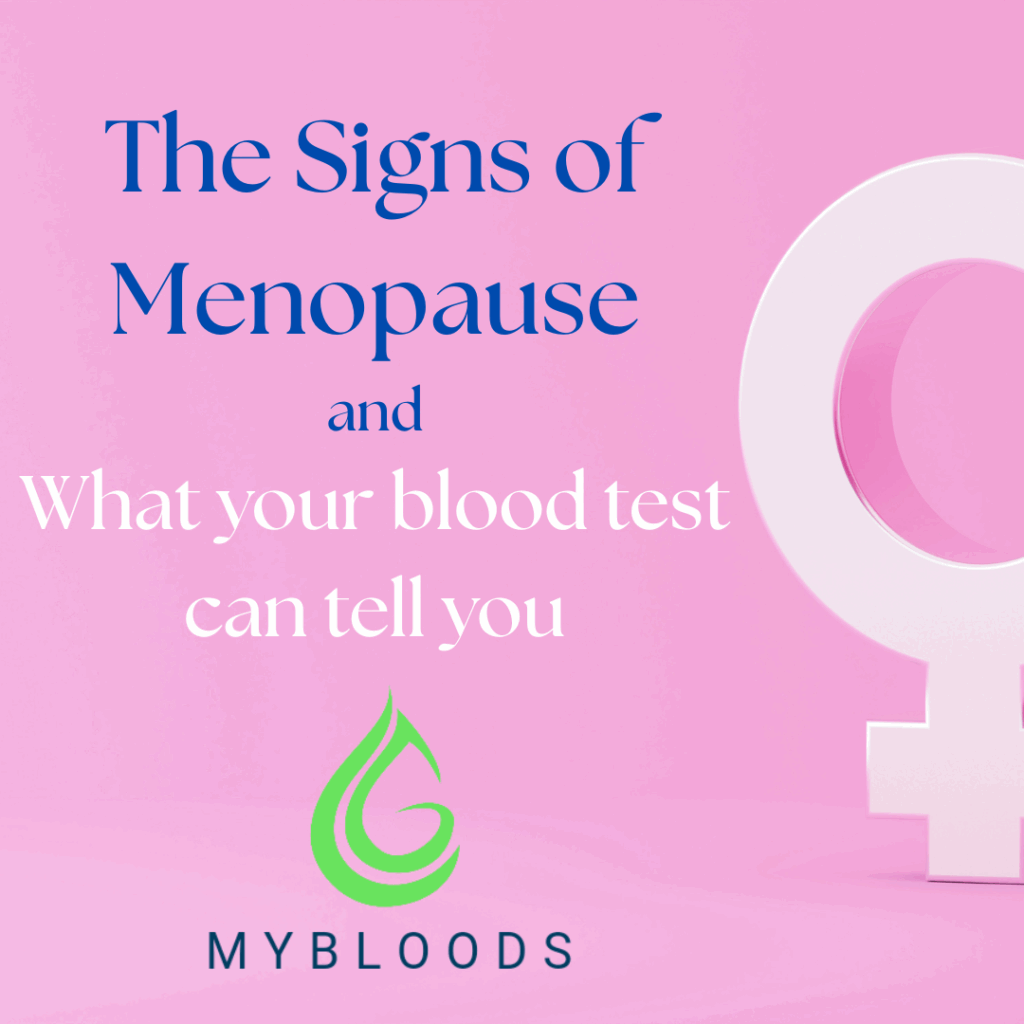
The Signs of Menopause and What Your Blood Test Can Tell You
Menopause is a natural transition in a woman’s life, marking the end of reproductive years. However, its onset can bring with it various symptoms and health concerns that are often challenging to navigate. Blood testing offers a valuable tool for diagnosing menopause, understanding its impact, and managing associated risks. In this article, we’ll explore the main signs of menopause, the role of blood tests, and the benefits of testing for women experiencing menopause symptoms.
What Is Menopause and Perimenopause?
Menopause is officially diagnosed when a woman has gone 12 consecutive months without a menstrual period, typically occurring around the age of 45–55. The transitional phase leading up to menopause is known as perimenopause, during which hormonal fluctuations can result in noticeable physical and emotional changes.
Key Signs of Perimenopause and Menopause
Irregular Periods
A hallmark sign of perimenopause, irregular periods may be shorter, longer, heavier, or lighter than usual.Hot Flashes and Night Sweats
Sudden feelings of intense heat, often accompanied by sweating, can disrupt daily life and sleep.Mood Swings and Irritability
Hormonal imbalances can contribute to anxiety, depression, and mood changes.Sleep Disturbances
Difficulty falling or staying asleep is common, often linked to night sweats and anxiety.Reduced Libido and Vaginal Dryness
Declining estrogen levels can affect sexual health, causing discomfort and reduced interest in intimacy.Fatigue and Brain Fog
Many women report a persistent lack of energy and difficulties with memory or concentration.Bone and Joint Pain
Decreasing estrogen levels can impact bone density, increasing the risk of osteoporosis and joint pain.
How Blood Tests Can Help Diagnose Menopause
Blood tests can provide valuable insights into hormonal levels, helping to confirm menopause and evaluate associated health risks. Common blood tests include:
Follicle-Stimulating Hormone (FSH)
Elevated FSH levels are a strong indicator of menopause.Estrogen (Estradiol)
Declining estradiol levels help assess the body’s hormonal balance.Thyroid Function Tests
Symptoms like fatigue and mood swings may overlap with thyroid issues, making thyroid tests essential to rule out other conditions.Lipid Profile
Menopause increases the risk of cardiovascular diseases; a lipid profile can help assess cholesterol and triglyceride levels.Vitamin D and Calcium Levels
These tests are vital for evaluating bone health, as menopause can lead to decreased bone density.Complete Blood Count (CBC)
This test checks for anemia, which can sometimes accompany menopause-related fatigue.
Benefits of Blood Testing During Menopause
Accurate Diagnosis
Blood tests provide clarity on whether symptoms are due to menopause or other health conditions.Personalized Health Monitoring
Regular blood testing allows women to track changes in hormonal levels and associated health markers over time.Risk Assessment for Chronic Conditions
Menopause increases risks for osteoporosis, heart disease, and diabetes. Blood tests help identify early warning signs, enabling proactive management.Tailored Treatment Plans
Insights from blood tests guide healthcare professionals in recommending lifestyle changes, supplements, or hormone replacement therapy (HRT).Improved Quality of Life
Addressing symptoms with data-driven strategies can help alleviate discomfort, improve energy levels, and support overall well-being.
Optimizing Your Health Through Blood Testing
Experiencing menopause symptoms can feel overwhelming, but blood testing provides a roadmap to better health. At our clinic, we offer a comprehensive range of blood tests tailored to women undergoing menopause. These tests help you gain a deeper understanding of your body, address symptoms effectively, and minimize risks associated with this life stage.
Conclusion
Understanding the signs of menopause and taking control of your health through blood testing can make the transition smoother and more manageable. By identifying hormonal imbalances and tracking changes, blood tests empower women to make informed decisions about their health and well-being.
Take the first step towards better health—schedule your menopause blood test today and embrace this new chapter with confidence and clarity.